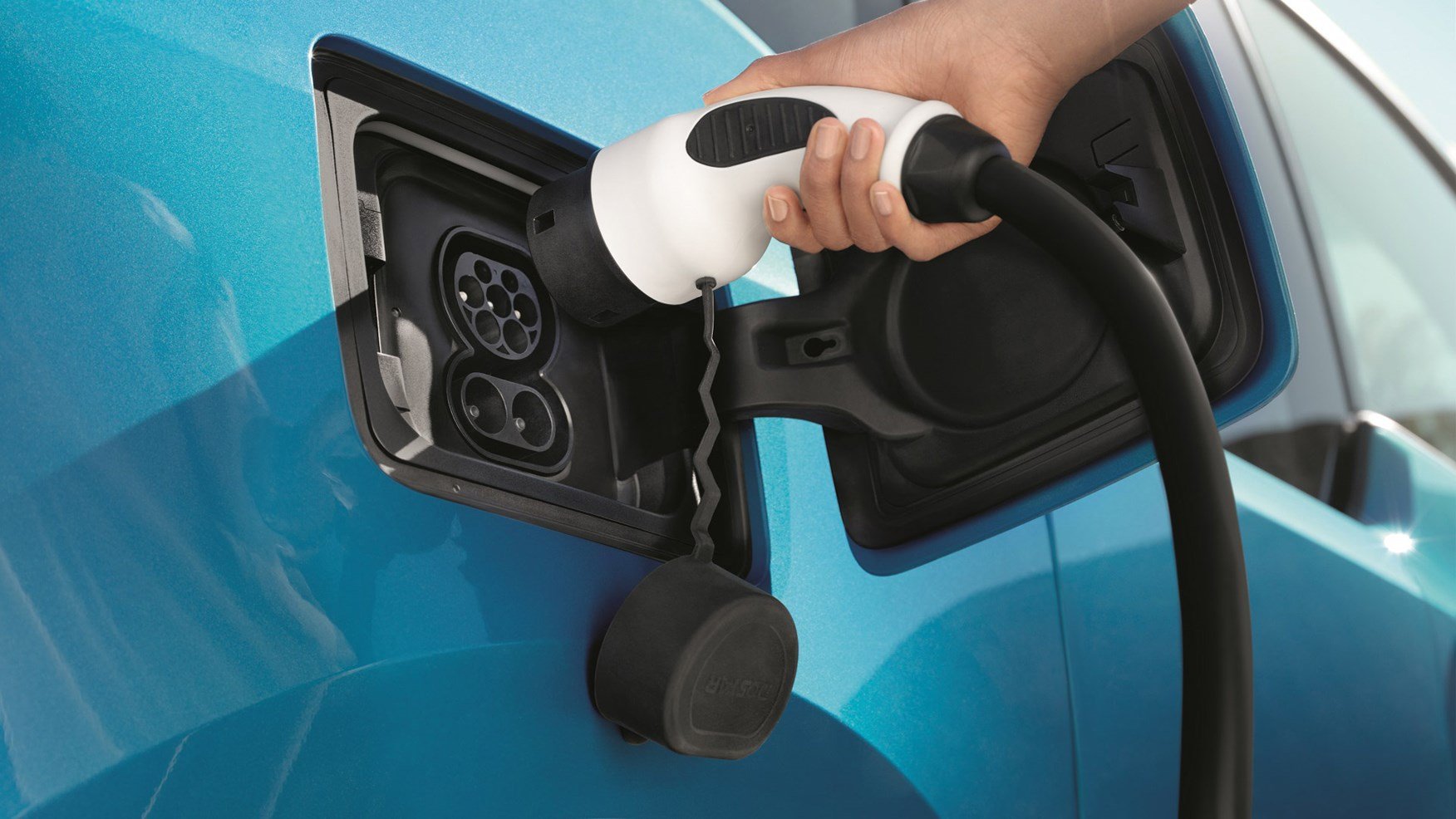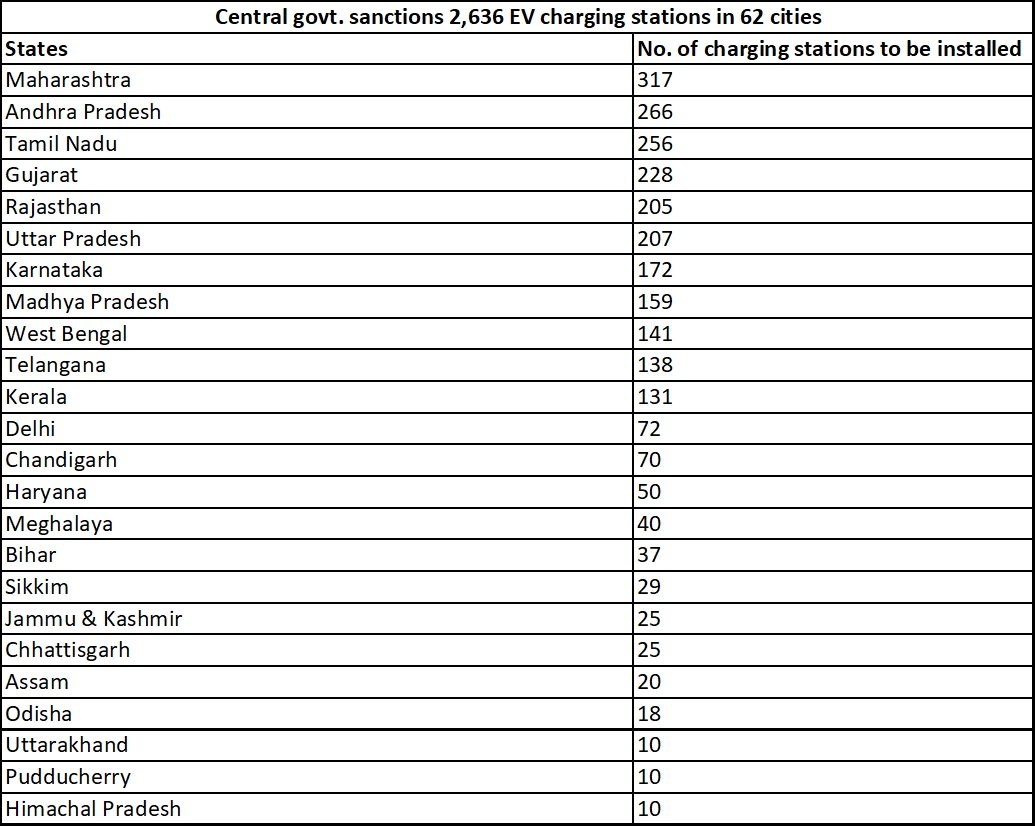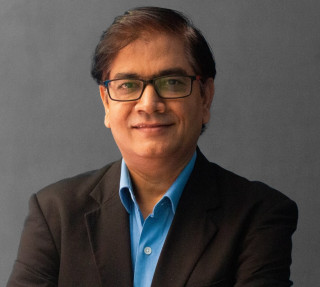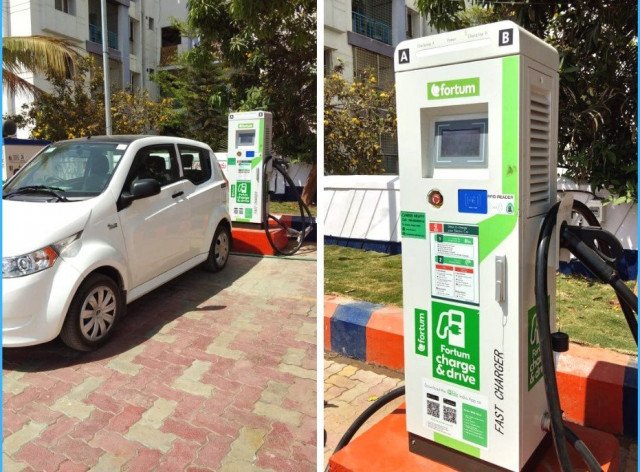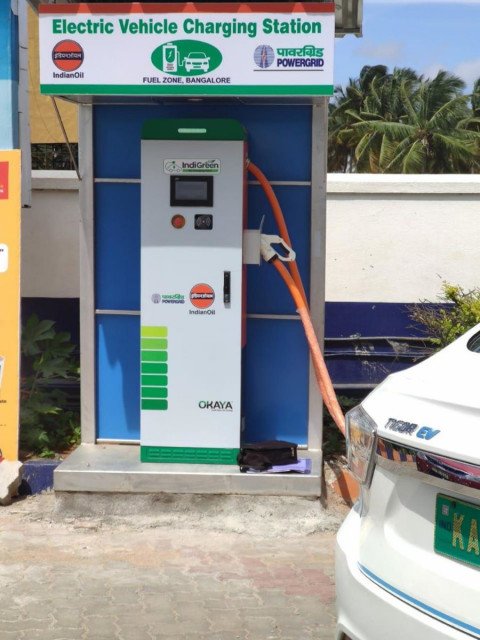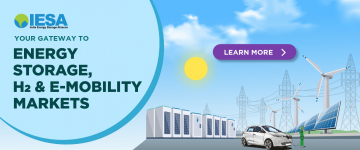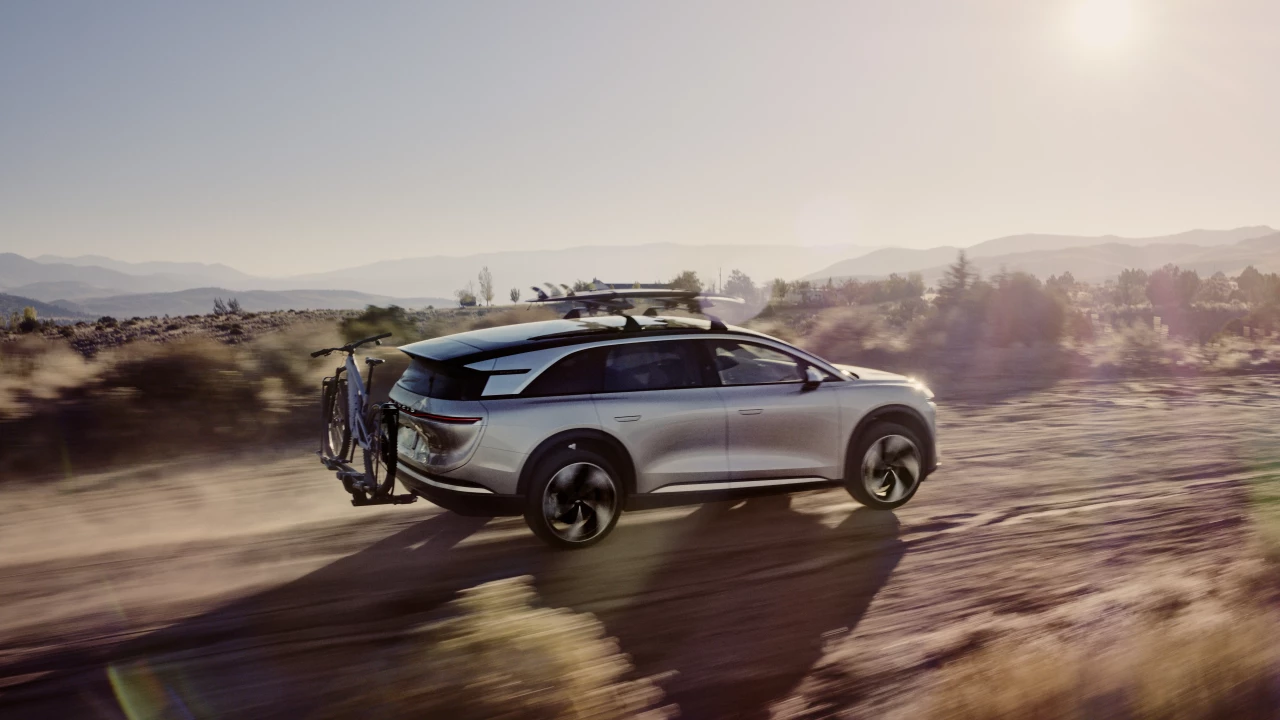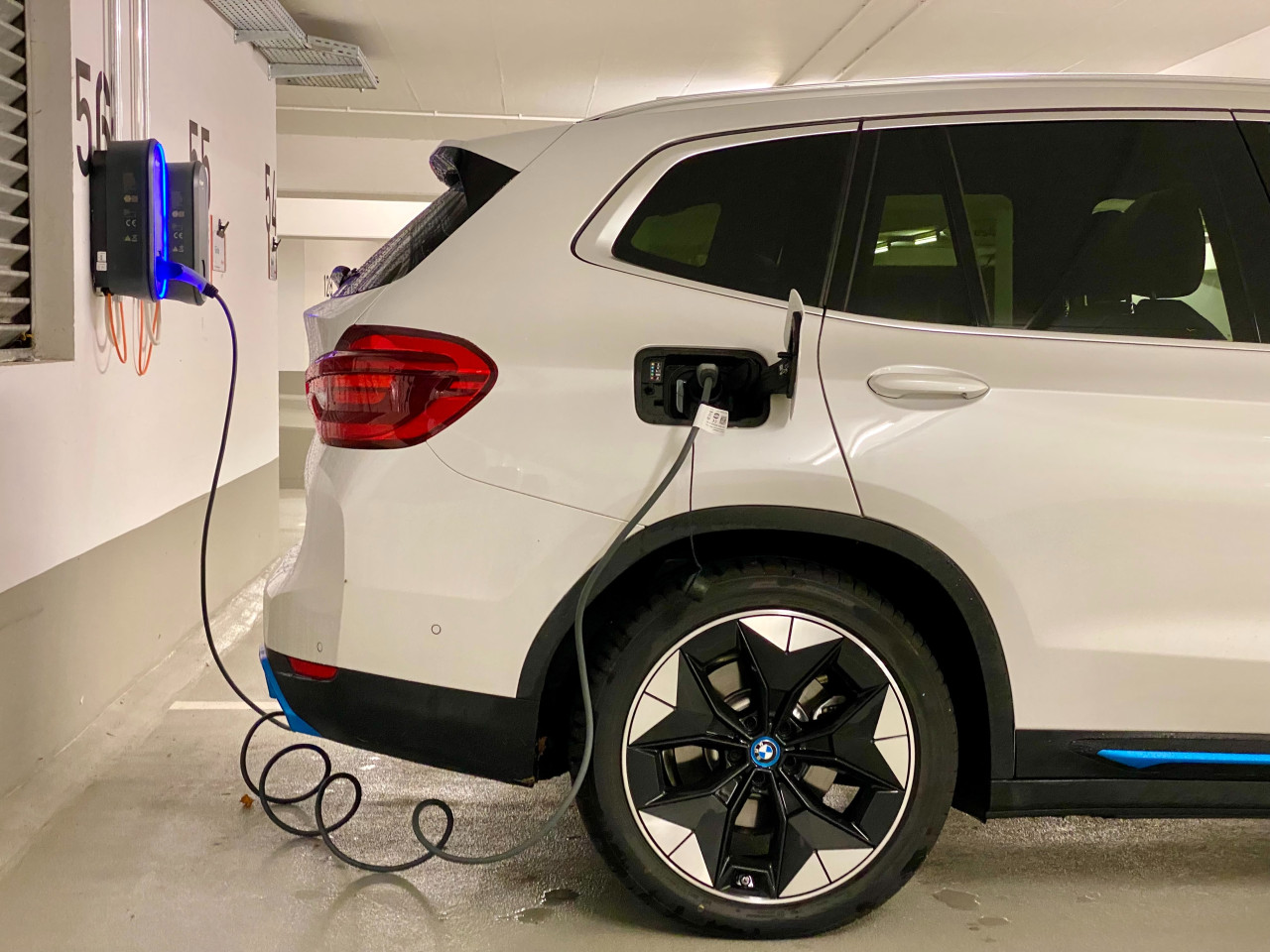Establishing robust charging infra; accelerated EV uptake expected
A strong EV charging infrastructure is crucial to facilitate rapid growth in EV adoption, requisite to reach India's policy targets.
One of the ways to contribute to a cleaner and greener environment is by adopting EVs as a favored mode of transportation. EV is the future and massive prospects exist in this space given that this shift is starting from virtually zero; charging is just one aspect of the business opportunities.
Mobility is changing swiftly, and India is powering ahead to a sustainability-driven future by embracing EVs. Availability of adequate charging infrastructure is one of the key necessities for further accelerating EV adoption in India. India is one of the emerging markets with very few local and international players in the EV charging sector. This presents India with a massive potential to rise in this market.
Lack of charging infrastructure remains one of the biggest hurdles to EV adoption in most countries, but this could be particularly crucial for meeting India's striving electrification goals.
A key challenge for the creation of battery charging or swapping infrastructure is the lack of availability of space. Hence, the government's plan of deployment of charging stations across fuel stations makes absolute sense as it will be easier to implement and help in the creation of robust charging infrastructure.
Government's push for developing EV charging infrastructure:
The government of India has undertaken several initiatives to encourage the manufacturing and adoption of EVs in India; EVs have started penetrating the Indian market. However, the availability of sufficient charging infrastructure is one of the key necessities for the accelerated adoption of EVs in India.
The government of India aims to support the development of EV charging infrastructure by extending capital grants to organizations for encouraging the use of EVs. It targets to build a network of charging stations throughout the country, to guarantee that at least one charging station is available every 25 kilometers on both sides of the country's highways and roads.
Under the Phase-II of Faster Adoption and Manufacturing of Electric Vehicles in India (FAME India), the Centre sanctions 2,636 EV charging stations in 62 cities. Out of these charging stations, 1,633 will be for fast charging, and 1,003 will be for slow charging. The government is planning to install around 14,000 charging stations across selected cities.
In February 2020, the government had given in-principle permission to firms, including NTPC, EESL, and REIL, to set up 2,600 EV charging stations.
In October 2020, The Department of Heavy Industries floated an Expression of Interest for inviting proposals from government organizations, PSUs (State/Central), State-owned DISCOMs, Oil PSUs, and similar other public and private entities to build and operate public EV charging stations.
Proposals have been invited from interested entities to build and operate EV charging infrastructure on the Mumbai-Pune, Ahmedabad-Vadodara, Delhi-Agra Yamuna, Bengaluru-Mysore, Bengaluru-Chennai, Surat - Mumbai, Agra - Lucknow, Eastern Peripheral, and Hyderabad-ORR Expressways. Likewise, proposals have also been invited from entities for highways including Delhi-Srinagar, Delhi-Kolkata, Agra-Nagpur, Meerut to Gangotri Dham, Mumbai-Delhi, Mumbai-Panaji, Mumbai-Nagpur, Mumbai-Bengaluru, and Kolkata to Bhubaneswar.
In November 2020, Union Transport Minister Nitin Gadkari announced that at least one e-charging kiosk will be set up at around 69,000 petrol stations across India, furthering the government's plan to make India an EV nation by 2030.
- The Delhi government has started the process to set up 100 vehicle battery charging points across the national capital to drive the adoption of EVs by the masses. It has also issued the largest tender for public charging stations in India to date.
- The Union Ministry of Heavy Industries and Public Enterprises has approved the setting up of 178 EV charging stations for the State of Telangana.
- Power PSUs' joint venture EESL plans to install around 500 more EV charging stations in the country during FY2020-21.
- The Karnataka government has proposed a subsidy of 20 percent or ₹10 lakh, whichever is higher, to individuals eager to set up public charging stations for EVs.
- In January 2021, Mysuru's first EV (EV) charging station was launched on the premises of the Chamundeshwari Electricity Supply Corporation's (CESC) Corporate Office at Vijayanagar, near Hinkal
- The Chief Minister of Goa, Pramod Sawant, inaugurated the first public EV charging station installed by Convergence Energy Services Limited (CESL), in the State as part of the Green Goa Initiative.
Industry backing the development of EV charging
- New Delhi-based Okaya Power has announced that it has already installed more than 500 EV chargers nationally and has installation orders for a further 10,000-plus system.
- Okaya Power also bagged a contract from State-owned Rajasthan Electronics and Instruments Limited (REIL) for setting up 4,244 multi-standard EV charging stations across the country.
- ABB India installed its first public DC fast charger in New Delhi with EV Motors India, the major charge point operator for BSES Yamuna Power.
- Hitachi ABB Power Grids has announced a partnership with Ashok Leyland for implementing its flagship fleet EV charging technology Grid-eMotion for large-scale public transport and commercial fleets in India.
- Mumbai-based EV charging company Magenta Power has signed an MoU with app-based electric scooter rental service eMatrixmile India to install and commission EV charging stations in Maharashtra.
- Fortum has signed an agreement with Finland's Finnfund whereby the impact investor will invest in a minority share of Fortum's public charging point operator (CPO), Fortum Charge and Drive India Private Limited (FCDIPL), to drive the growth of EV charging infrastructure in India.
- Mumbai-based smart e-2W mobility platform eBikeGo has announced its plans to launch its own IoT-enabled smart charging stations – 'eBikeGo Charge' in five cities National Capital Region (NCR), Mumbai, Bangalore, Hyderabad, and Chennai. It also aims to install 12,000-15,000 charging stations across the country.
- Indian Oil Corporation (IOC) has already installed EV charging points at 76 fuel stations, and battery swapping facilities at 11 outlets across the country.
- In January 2021, Panasonic Life Solutions India has joined hands with PMI Electro Mobility Solutions to set up EV charging infrastructure across 17 cities in India for over 1,000 e-buses.
- MG Motor in partnership with Tata Power has deployed the first 60 kW superfast public EV charging station in Mangaluru.
- In February 2021, Central Railway, Tata Power, and UN Environment Programme (UNEP) joined forces to install EV charging points at several railway stations in the city of Mumbai. Starting with Chhatrapati Shivaji Maharaj Terminus (CSMT), Thane, Dadar, Parel, and Byculla, for which work orders have already been issued. The second phase will cover the stations of Lokmanya Tilak Terminus, Bhandup, Panvel, and Kurla.
Industry outlook for 2021
To learn more about the industry's viewpoint on EV charging infrastructure sector development in the year 2021, ETN connected with a few of the prominent industry charging solutions providers.
Awadhesh Jha, Vice President Charge & Drive - Fortum Charge & Drive India Pvt Ltd
Expectations for the year
Indian economy is not insulated from what is happening at the global level. As more and more countries are adopting EVs, it will shortly start moving at a higher pace, and India being a globally connected economy will reap the benefits of global adoption and it will reach the majority stage in a shorter span than other countries, as Indian customers will form part of an early majority in terms of the global market.
Globally, EV is gradually inching towards being the mainstream vehicle, particularly in the passenger vehicle segment. Indian car OEMs are also taking steps to join this movement. In the year 2021, I expect that customers would have more than 12-15 products in the passenger vehicle segment to choose from compared to five-six products available at present. In the Union Budget 2021, the voluntary scrappage policy announced by the Finance Minister is also expected to give a fillip to roll out of new EVs.
With the PM's call for trusting our private sector, I expect that the involvement of private players would be encouraged in creating a robust and reliable public charging infrastructure, which is touted to be one of the major impediments for the adoption of EVs.
Product/Technology/Policy to stimulate sector growth
The country has already taken various steps to enable EVs to take off. Five percent GST on battery electric vehicle, waiver of road tax and registration charges by various State governments, demand-side incentive through FAME-II, etc., are few seminal policy measures to encourage both OEMs and customers to go for EV.
The recently announced PLI scheme is expected to stimulate growth in the EV sector by promoting the manufacturing of advanced batteries in India, which should bring down the cost quickly, making the cost of EVs at par with ICE. It is important to note that the cost of ICE vehicles would keep increasing due to stringent emission norms being pursued by the country for making our lives healthier, whereas the cost of EVs will continue to fall due to technological advancement in battery and scale. Once EV attains the price parity with ICE, which I expect to happen in two-three years, buying ICE vehicles would be like buying a horse, which is for hobby and not for utility - to borrow the words of one of my colleagues.
Growth plans for the year
We are an electric fuel company that enables the end customers to forget the range anxiety while driving their EV. We intend to empower them to decide the location, time, and price of getting the battery of their EV filled with electric fuel. We are hardware agnostic. We believe that public charging infra has to precede the adoption of EV. We have been expanding the network in pari passu with the demand for EVs in the market, and we would continue to be doing so. We have been operating 97 public charging points across seven cities in India, where both low voltage high voltage passenger EVs can be serviced.
Product launch/ facility development plans
To bolster growth for EV charging infrastructure in India, we have recently signed an agreement with Finnfund, a Finnish development financier and professional impact investor. Finnfund will invest in a minority share of Fortum's public charging point operator (CPO), Fortum Charge and Drive India Private Limited (FCDIPL). This partnership would create a shared ownership structure and Finnfund's investment will accelerate FCDIPL's growth plans in the charging infrastructure business and reaffirm its market-leading position. We will further continue to offer software as a service (SaaS) for operating EV charging infrastructure networks and customer interfaces to other CPOs.
Industry-readiness for ACC manufacturing
According to NITI Aayog's Advanced Chemistry Cell and Battery gigafactory plan, manufacturers can expect to get incentives close to $25/kWh. Secondly, they would be disincentivizing the high-scale import of EVs and associated components, thereby ensuring the 'Make in India' campaign. This is important because of the backward integration required for EV manufacturing in India. The government, looking to encourage more private investment in the sector, has initiated tax incentives for manufacturers and a basic customs duty safeguard from 2021-2030 for those making advanced chemistry cells and batteries in India.
Anshul Gupta, Director, OKAYA Power Group
Expectations for the year
EVSE (Electric vehicle supply equipment): This year, we expect several original equipment manufacturers (OEMs) to launch new EV models in the country. In the premium range, we look forward to Porsche Taycan, while in the affordable range we are expecting new electric models from prominent manufactures like Tata Motors and Mahindra.
We also aim to accelerate the deployment of HC/DC and ADC chargers in the private sector domain.
Electric two-wheelers: We expect a surge in sales of high-speed and low-speed e-2W after a slump phase in 2020, due to COVID-19 induced nationwide lockdown.
There is a need for a stricter 'Make In India' plan and specific guidelines to be directed by the Ministry of Heavy Industries and Public Enterprises to boost and encourage indigenous manufacturing. Alongside, consumer awareness for the switching to e-mobility has to be undertaken for reaching out to the masses and accelerating the deployment of EVs.
Electric three-wheelers: This year, we envisage a surge in deployment of electric cargo e-3W as the industry braces to implement e-mobility to reduce the carbon footprint and achieve zero emissions and move towards sustainable transportation for cost-efficient last-mile delivery. This will in turn drive the battery chargers' replacement sector in the country.
Growth plans for the year
We are very much focusing on innovating indigenous 'Make In India' products for the sector. The product line includes:
- BMS (Battery Management System) of HV (high-voltage)
- EVSE (Electric vehicle supply equipment)
- Universal fitment approach for swappable batteries and chargers
- Develop a steadier SCM (supply chain management) and supplier base in India
- Improved service SLA (service level agreement) and TATs (turnaround time)
Product launch/ facility development plans
We aim to set up a new EVSE facility in Himachal Pradesh. The company is also working on its plans to develop its newly expanded Li-ion battery plant.
We are working on a product portfolio for low-speed e-3W products and we are committed to ensuring deeper market penetration in this segment.
To provide reliable and all-weather batteries for tractors, we are working on a new range of Li-ion batteries for tractors and enable the industry's transition from lead-acid batteries
Industry-readiness for ACC manufacturing
The PLI scheme announced by the Central government for manufacturing ACC batteries looks like an interesting prospect in the right direction and it will shape rapidly. An early investment into the same will enable the creation of steady supply chain management and vendor base. The government's key focus has been on the indigenization of fuel cells, and will only accelerate the overall growth of the industry.
We, at Okaya, are keeping a close eye on the development within the same and will only venture in the direction when the time is right. For now, we are in process of exploring new innovative battery technology other than lithium-ion.
Way Ahead
EV charging station networks in India seem to be more important than introducing more EVs in the country. There is a need to increase charging stations in India as the government is planning to shift towards green energy, which can only be possible by using EV. The government is also implementing different policies to construct charging stations.


